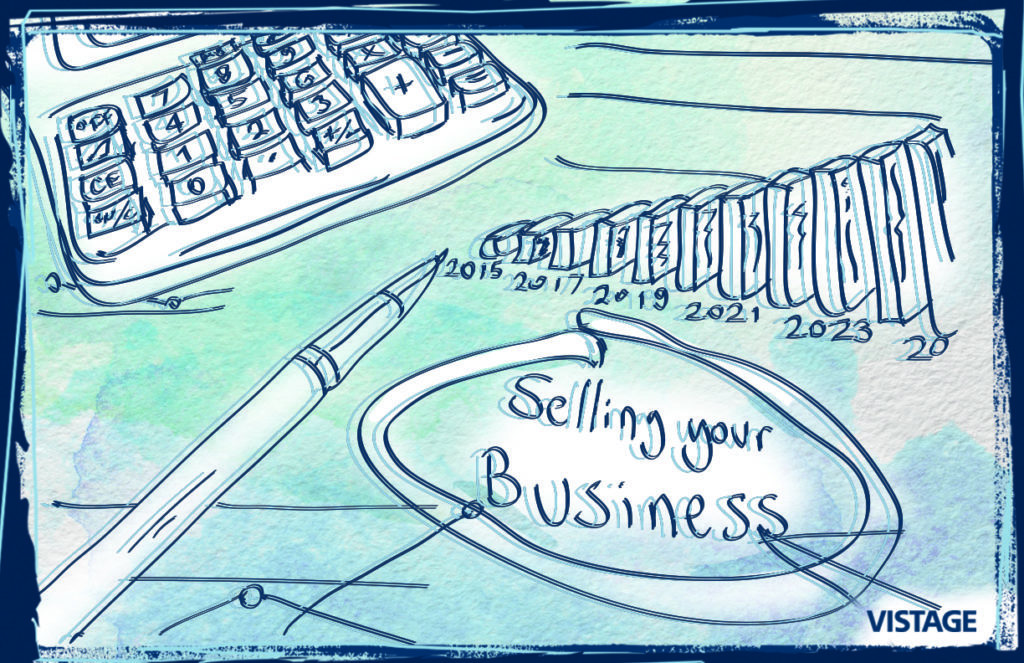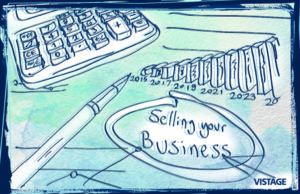Selling Your Business [M&A Series: Part Three] Strategic Buyers – Three Evaluation Factors For Buying Your Business

In part three of our M&A Series on Selling Your Business, we will be discussing how to prepare to sell your business to a strategic buyer, who are generally larger companies with capital to spare to spend on your business.
 It’s not uncommon for giant corporations to acquire smaller but relevant companies as their companies grow. Take giant social media mogul Facebook, who acquired WhatsApp last year to enhance its visual messaging capabilities. Strengthening key weaknesses is just one of the many reasons a strategic buyer might be interested in your company. Here are three factors strategic buyers consider when purchasing businesses.
It’s not uncommon for giant corporations to acquire smaller but relevant companies as their companies grow. Take giant social media mogul Facebook, who acquired WhatsApp last year to enhance its visual messaging capabilities. Strengthening key weaknesses is just one of the many reasons a strategic buyer might be interested in your company. Here are three factors strategic buyers consider when purchasing businesses.
- Why you want to sell the business
While it’s true that strategic buyers may have access to the kind of capital you need, they may not be chomping at the bit to grab every business offered to them for sale. Because they’re an attractive option for business owners looking to sell, strategic buyers can afford to be choosy and dig into what’s going on with your business.
Steven L’Heureux, COO of a $600M multinational technology company, was recently approached by a smaller company that was looking to be bought out by a strategic buyer. This smaller company were looking to gain access to capital to fund growth, but also had a few other reasons for choosing the strategic buyer path. The company was focused on gaining credibility with its larger customers, and becoming ingrained with Steven’s multinational firm would provide that. Along with that, the owners wanted to remain active in running the business, and were very up front and clear about that condition. Thus this strategic buyer did end up purchasing 80% of this company but as per the smaller company’s conditions, it was managed as a wholly owned subsidiary and the owners remained very active in the managing of the business.
Smart sellers like this company above will approach strategic buyers with an honest and compelling response on why they’re looking to sell and what they hope to gain from doing business together.
- How your business will help them
Strategic buyers are interested in whether a company will fit into their own long-term business plans. Their interest in acquiring a company may include vertical expansion (toward the customer or supplier), horizontal expansion (into new geographic markets or product lines), eliminating competition or enhancing some of its own key weaknesses (technology, marketing, distribution, research and development, etc.).
The better the fit your company is for the strategic buyer, the more they’ll want the business and the greater premium they will pay. Even though Facebook acquired WhatsApp for $19 billion, it first offered a similar company (Snapchat) $3 billion for the same deal, proving that the more synergies a strategic buyer can find between their company and yours, the more they’re willing to shell out to gain your business.
- What’s truly valuable about your company
You may be the owner of a profitable, growing business, but finding the right match is what’s most important for strategic buyers. While profits are certainly attractive, most strategic buyers will also value a broad and diverse customer base, strong internal financial reporting, solid industry reputation and differentiated products/services.
Steven has also been on the other side of this kind of transaction, where he needed to prep his company to a place of interest for a strategic buyer to purchase. To that end, he implemented several changes that had an immediate effect on company value: he invested in updating his product line, improved his market messaging, upgraded his ERP system and incentivized his sales force to focus on expanding the customer base. The result? His small upfront investment in these activities resulted in a $40 million increase in the final purchase price of his company.
“There is no roadmap for how to sell a company, because each transaction is unique and, with the guidance of experienced dealmakers, can be structured to meet the requirements of both the buyer and seller,” Steven said. “Once you decide to sell your business, the most important next step is to find a trusted confidant with M&A experience to help you navigate the process, and ensure you structure the deal to best meet your needs and maximize your price.”
In part four, the last article of this series, we’ll explore selling your company to your employees through an Employee Stock Ownership Plan, commonly called an ESOP. Stay tuned!
Category: Mergers & Acquisitions


Great advice. Another very important piece of the puzzle is how you go about selling your business. The holy grail of a business sale is to get a soft auction going among a handful of strategic buyers through a formal M&A process. Do not, I repeat, do not take that introduction from an advisor and get involved with a single buyer. You will leave millions of dollars on the table.